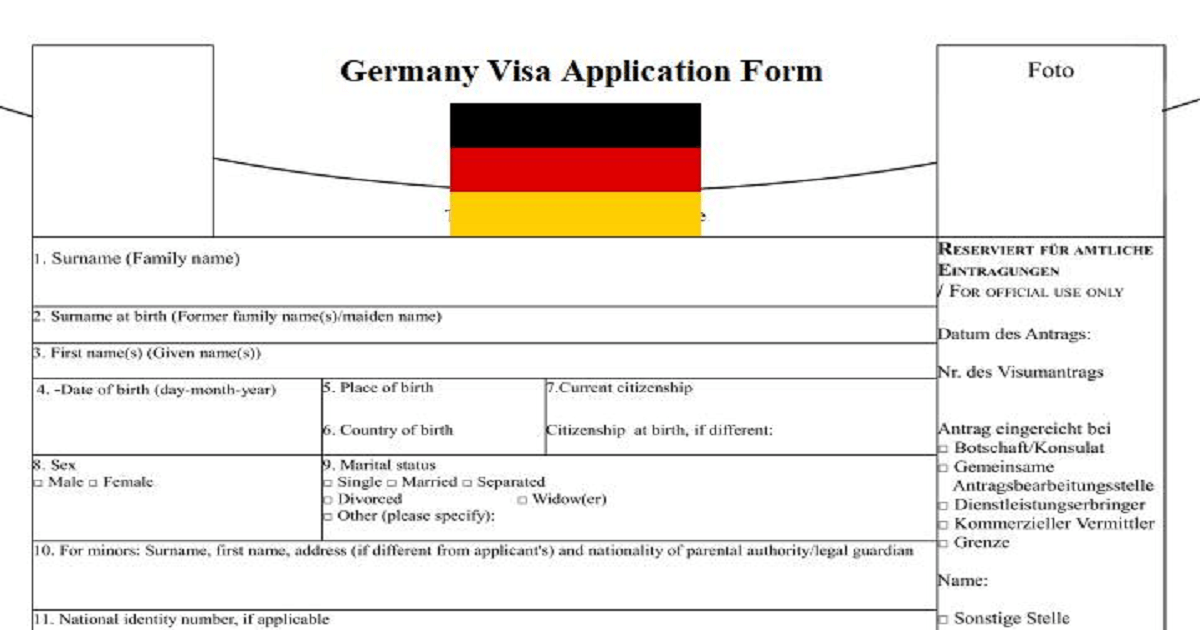Germany is one of the most popular destinations for professionals seeking to advance their careers in Europe. With its robust economy, innovative industries, and high standard of living, it’s no wonder that many people from around the world want to work in Germany. If you’re considering moving to Germany for work, you’ll likely need a German work visa. This article will guide you through the process of applying for a German work visa, including the different types of visas, eligibility criteria, application procedures, and tips for a successful application.
There are several types of work visas available for Germany, depending on your qualifications, job offer, and duration of stay. The most common types include:
- Job Seeker Visa: This visa allows you to enter Germany for up to six months to search for a job. If you find a job during this period, you can then apply for a work visa or residence permit.
- EU Blue Card: Designed for highly skilled workers, the EU Blue Card is a residence permit for non-EU nationals. To qualify, you must have a university degree and a job offer with a salary of at least €56,800 per year (or €44,304 in shortage occupations such as IT or engineering).
- General Employment Visa: For professionals with a job offer in Germany that does not qualify for the EU Blue Card, this visa is suitable. You must have a concrete job offer and demonstrate that there are no suitable candidates from Germany or the EU available for the position.
- Work Visa for Specialists and Skilled Workers: This visa is for skilled workers with vocational training or qualifications recognized in Germany, especially in shortage occupations.
- Freelance Visa: If you plan to work as a freelancer or start your own business in Germany, this visa is for you. You need to demonstrate the viability of your business or freelance activity and have adequate financial means to support yourself.
Eligibility Criteria
To apply for a Germany work visa, you must meet several eligibility criteria. These vary slightly depending on the type of visa, but generally include:

- Job Offer: You need a concrete job offer from a German employer. The job must correspond to your qualifications and pay a salary that meets legal requirements.
- Qualifications: For most work visas, you must have a recognized university degree or vocational qualification. Your qualifications may need to be officially recognized in Germany.
- Professional Experience: Relevant work experience in your field may be required, especially for highly skilled positions.
- Financial Means: You must demonstrate that you have sufficient financial means to support yourself, particularly if you are applying for a job seeker or freelance visa.
- Health Insurance: You must have adequate health insurance coverage for your stay in Germany.
Application Process
The application process for a German work visa involves several steps:
- Secure a Job Offer: The first step is to find a job in Germany. Use job portals, company websites, and professional networks to search for job opportunities. Once you receive a job offer, ensure that your employer provides you with a detailed job contract or offer letter.
- Prepare Your Documents: Gather all necessary documents for your visa application. Commonly required documents include:
- A valid passport
- A completed visa application form
- Passport-sized photos
- Job offer or contract from a German employer
- Proof of qualifications and work experience
- Curriculum Vitae (CV)
- Proof of financial means
- Health insurance coverage
- Proof of accommodation in Germany
- Recognized certificates of your qualifications and work experience
- Motivation letter explaining why you want to work in Germany and how it aligns with your career goals
- Apply for Visa at German Embassy or Consulate: Schedule an appointment at the German embassy or consulate in your home country. Submit your visa application and all required documents in person. Pay the visa application fee, which typically ranges from €75 to €100.
- Attend the Interview: During your appointment, you may need to attend an interview. Be prepared to answer questions about your job offer, qualifications, and plans in Germany.
- Wait for Processing: The processing time for a German work visa can take several weeks to a few months, depending on the visa type and your home country. During this time, the embassy or consulate will verify your documents and make a decision on your application.
- Receive Your Visa: If your application is approved, you will receive your German work visa. Check the visa for accuracy and any specific conditions or restrictions.
- Travel to Germany: Once you have your visa, you can travel to Germany. Upon arrival, you must register your address with the local registration office (Einwohnermeldeamt) within two weeks and obtain a residence permit from the local immigration office (Ausländerbehörde).
Tips for a Successful Application
- Research Thoroughly: Understand the specific requirements and procedures for the type of visa you are applying for. Check the German embassy or consulate website for detailed information.
- Prepare Early: Start preparing your documents and job search early, as the process can be time-consuming. Ensure that your qualifications are recognized in Germany.
- Seek Professional Advice: If you are unsure about any part of the application process, consider consulting with a visa expert or immigration lawyer.
- Be Thorough and Honest: Provide complete and accurate information in your application. Any discrepancies or false information can lead to visa denial.
- Learn German: Although not always mandatory, knowing German can significantly enhance your job prospects and ease your integration into German society.
High Demand Jobs in Germany in 2024:
- IT Specialists
- IT Consultants/Analysts
- Data Scientists/Analysts
- Software Developers
- Doctors
- Engineers
- Mechanical and Vehicle Engineers
- Electrical Engineers
- Civil Engineers
- Scientists
- Mathematicians
- Nurses and Senior Care Workers
- Metal Workers
- Electronics Technicians or Electricians
- Mechatronics
- Sellers in Retail
Job Site:
https://www.linkedin.com/jobs/
https://indeed.de
https://stepstone.de
https://monster.de
https://jobboerse.arbeitsagentur.de
Conclusion
Applying for a German work visa is a structured process that requires careful preparation and attention to detail. By understanding the different types of visas, meeting the eligibility criteria, and following the application procedures, you can increase your chances of successfully obtaining a work visa and starting a rewarding career in Germany. With its thriving economy, high quality of life, and diverse opportunities, Germany is an excellent destination for professionals seeking new challenges and growth.




